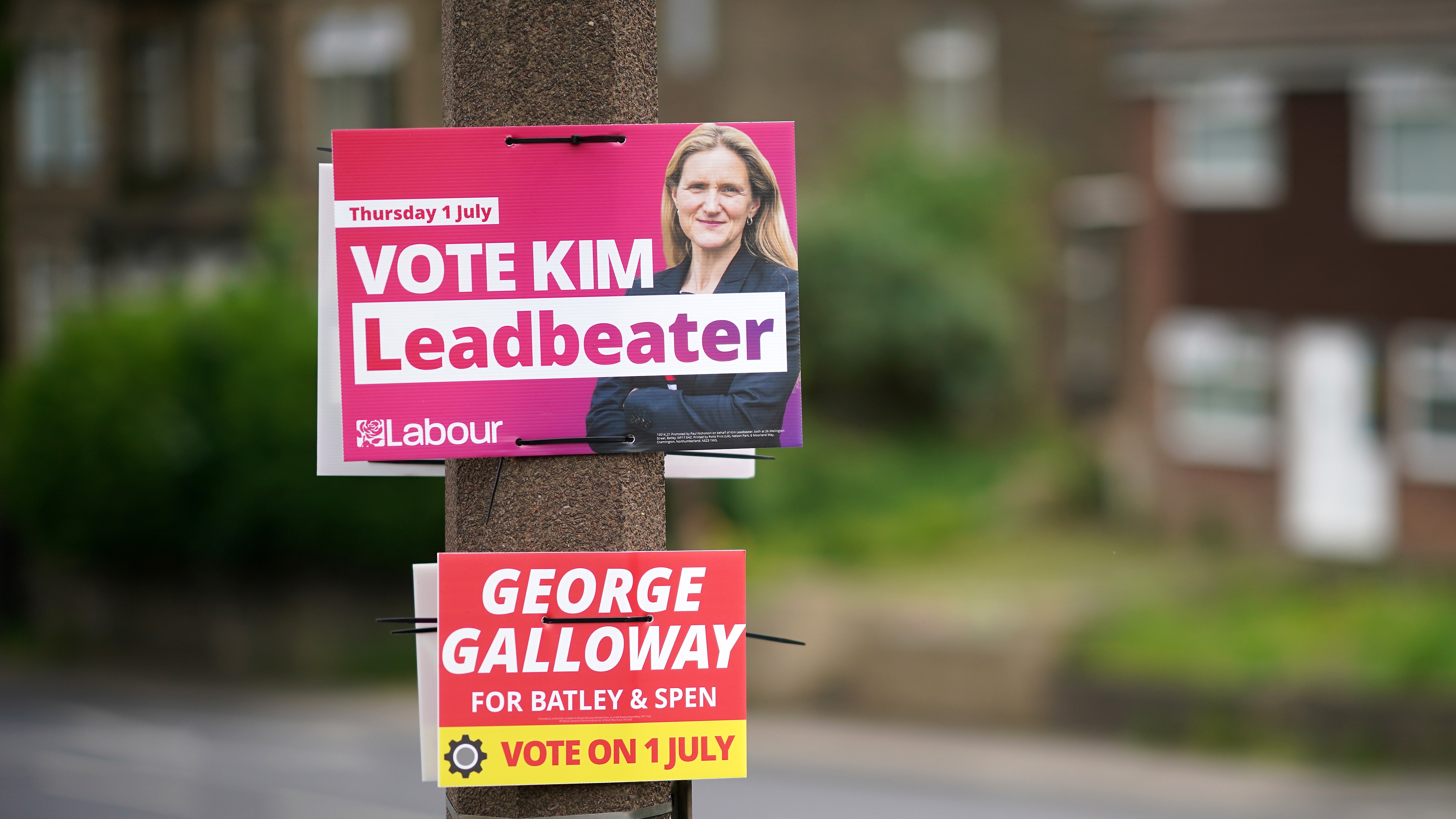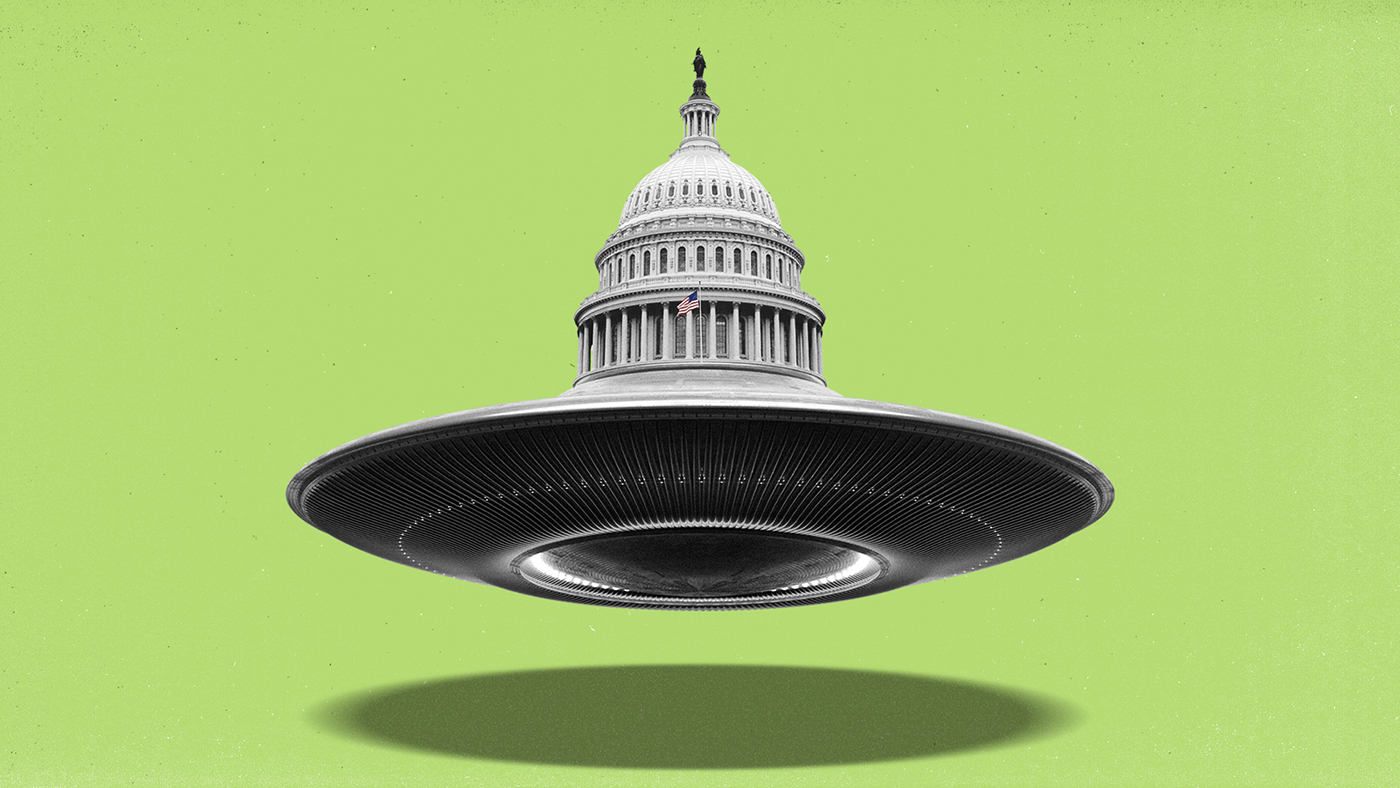‘Labour’s leaflet is less of a dog-whistle and more of a megaphone strategy’
Your digest of analysis and commentary from the British and international press

A free daily email with the biggest news stories of the day – and the best features from TheWeek.com
You are now subscribed
Your newsletter sign-up was successful
1. Keir Starmer’s Labour has an India problem
Madeline Grant in The Telegraph
on unsavoury campaigning
“Its residents are yet to go to the polls, but already the Batley and Spen by-election must rank as one of the most dismal, dispiriting campaigns in British political history,” writes Madeline Grant in The Telegraph. It has descended into an “atmosphere of thuggery”, and appears to be the “political equivalent of a satanic hellscape by Bosch or Bruegel, with every unsavoury contemporary trend represented.” “And now Labour has issued an extraordinary leaflet,” Grant continues. “Apparently aimed at Muslim voters in the area, it implies the Tories are Islamophobic and attacks the Government over its diplomatic relations with India”, and features a picture of Narendra Modi, beside a large arrow saying: “The risk of voting for anyone but Labour is clear… Don’t risk a Tory MP who is not on your side”. “You’re not supposed to be able to hear a dog-whistle; this is more of a megaphone strategy,” writes Grant.
The Week
Escape your echo chamber. Get the facts behind the news, plus analysis from multiple perspectives.

Sign up for The Week's Free Newsletters
From our morning news briefing to a weekly Good News Newsletter, get the best of The Week delivered directly to your inbox.
From our morning news briefing to a weekly Good News Newsletter, get the best of The Week delivered directly to your inbox.
2. England’s players don’t even know they’re born. Wonderful, isn’t it?
Tom Peck in The Independent
on England’s victory
“It’s hard to tell if it’s okay to get carried away,” writes Tom Peck in The Independent. “In the agonising buildup” to Tuesday’s England vs. Germany Euros match “so much was made of how almost none of the squad had even been born when all those horrendous memories” of 1996 were made. “And if that was a way of unburdening themselves of the horrendous pressure of the occasion and heaping it upon their own fans, then it worked.” “Kane, Sterling, Grealish, Declan Rice – there they all were, under what has now become a traditional grey June sky, having the time of their lives” unaware that their win “isn’t how it’s meant to be.” “Onward to no one quite knows where,” writes Peck. “Football, it must be said, is still a very, very long way from coming home. But at last, at long glorious last, it remembered to call its parents and check they were okay and yes, quite frankly, they’ve never been better.”
A free daily email with the biggest news stories of the day – and the best features from TheWeek.com
3. There is (very possibly) something out there
Roger Boyes in The Times
on unidentified aerial phenomena
“There’s a good reason why it has taken the Pentagon so long to draw up a sober balance of UFO activity, now rebranded as UAP, unidentified aerial phenomena,” writes Roger Boyes in The Times. During the Cold War, “when sightings were at their peak”, the primary concern of the US government “was not an imminent invasion of little green men but of Russian attack, a thermonuclear war, mass panic.” But now, a “newly transparent Pentagon has declared the UFO to be, in effect, a matter of national security”. And the US pilots who have been “noticing these freakish events” can “often back their claims with radar results and sightings on the ground; together, these findings worry the air force.” “It could be that the usual suspects, Russia and perhaps China, are much further ahead in their military intrusions than anyone in the West calculated and that we have been altogether too cocky about our technical superiority,” says Boyes. “Or perhaps, just perhaps, on the wildest fringes of probability, some aliens are trying to get up close.”
4. What are the checks and balances governing UK ministers?
Alice Lilly in The Guardian
on ministerial standards
“As the fallout from the Matt Hancock affair continues, questions have been raised about the UK’s system of checks and balances on ministerial behaviour,” writes Alice Lilly in The Guardian. “Perhaps the most fundamental, and longstanding, check in the system is the idea that ministers are ultimately accountable to parliament, though the tools available to MPs are much harder to wield if the government has a comfortable majority,” she writes. “With no strong opposition, the court of public opinion and what it means for the government’s political calculations has played a deciding role in the Hancock affair.” Indeed, “when embarrassing images of the health secretary and [Gina] Coladangelo appeared, Hancock’s first move, like the prime minister’s, was to try to draw a line under the matter”, notes Lilly. “It was only when the extent of public anger became clear, along with a rapid loss of support for Hancock among Conservative MPs, that he decided to quit.” “Checks and balances on ministerial bad behaviour as they stand are often too dependent on the weight of public opinion to have an impact”, writes Lilly. “But standards should always matter, regardless of whether they are deemed to cut through with the public or not.”
5. France’s conservatives prise open the presidential race
Financial Times Editorial Board
on the French centre-right
“Four years after it crashed out of the first round of the 2017 presidential election, for the first time in the fifth republic, France’s centre-right opposition has the wind back in its sails,” writes the Financial Times. The mainstream conservative Republicans and their allies won seven out of the 12 mainland French regional councils in elections on Sunday, “comfortably fending off their far-right challengers and inflicting a crushing defeat on President Emmanuel Macron’s La République en Marche.” “For a party that went into the regional campaign looking divided and demoralised, it was a remarkable turnaround”, writes the paper. It seems that “the centre of gravity of French politics has tilted decidedly to the right and that is where next year’s elections will be decided. The left proved more resilient than anticipated but is split between different parties. While “Macron’s popularity is in better shape” than his rivals as the country emerges from the pandemic, he faces a “dilemma”. “The president conjured up a political identity by pretending to eclipse old ideological affiliations.” But “[t]he centre-right’s recent success suggests there is still life left in them.”
-
 The EU’s war on fast fashion
The EU’s war on fast fashionIn the Spotlight Bloc launches investigation into Shein over sale of weapons and ‘childlike’ sex dolls, alongside efforts to tax e-commerce giants and combat textile waste
-
 How to Get to Heaven from Belfast: a ‘highly entertaining ride’
How to Get to Heaven from Belfast: a ‘highly entertaining ride’The Week Recommends Mystery-comedy from the creator of Derry Girls should be ‘your new binge-watch’
-
 The 8 best TV shows of the 1960s
The 8 best TV shows of the 1960sThe standout shows of this decade take viewers from outer space to the Wild West
-
 Locals speculate about aliens in Wales
Locals speculate about aliens in WalesTall Tales And other stories from the stranger side of life
-
 UFO hearing: why is Washington suddenly embracing aliens?
UFO hearing: why is Washington suddenly embracing aliens?Today's Big Question Speculation of extraterrestrial life has moved from ‘conspiracy fringe’ to Congress
-
 Mexico volcano ‘a wormhole’ for aliens
Mexico volcano ‘a wormhole’ for aliensfeature And other stories from the stranger side of life
-
 Why Yorkshire town’s Christmas tree is still up
Why Yorkshire town’s Christmas tree is still upfeature And other stories from the stranger side of life
-
 Pentagon whistleblower claims government hiding alien technology
Pentagon whistleblower claims government hiding alien technologyfeature A former intelligence worker claims the government is secretly holding vehicles of ‘non-human origin’
-
 Ghost called Dave haunts Nuneaton pub
Ghost called Dave haunts Nuneaton pubfeature And other stories from the stranger side of life
-
 Space tourists face sex bureaucracy
Space tourists face sex bureaucracyfeature And other stories from the stranger side of life
-
 Bulldog saves owner’s leg by eating his toe
Bulldog saves owner’s leg by eating his toefeature And other stories from the stranger side of life